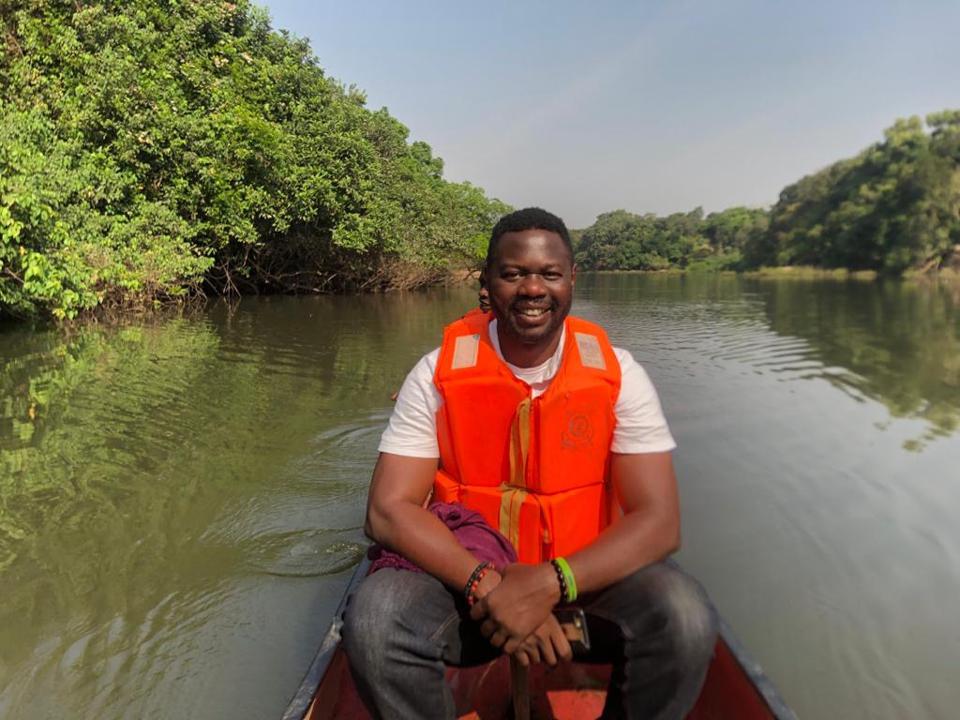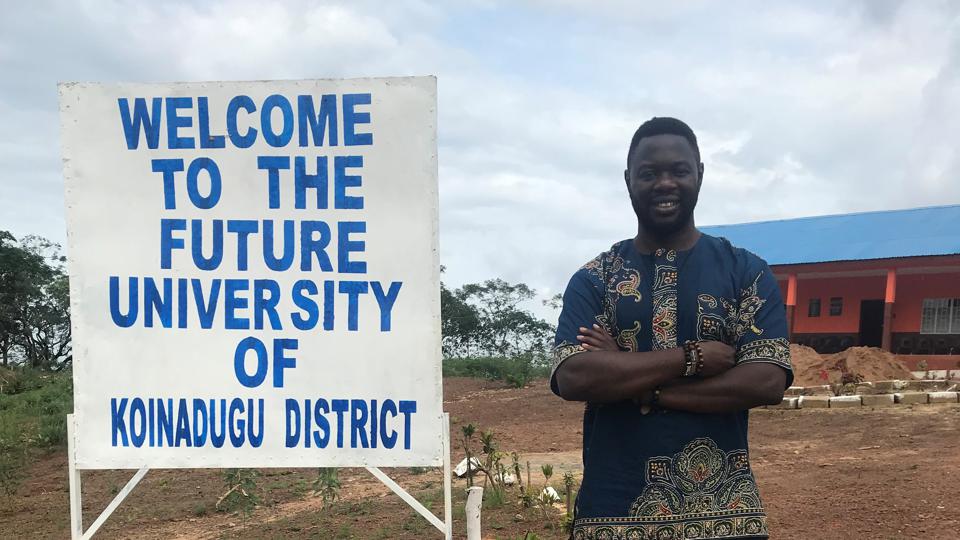Picture: Alhaji N’Jai at the site of Koinadugu College.KRISTI
Alhaji N’Jai left Sierra Leone to pursue a scholarship in the US, which also served to get him out of the country during its civil war, but in recent years he has been able to return, both to study Ebola and help educate the next generation of STEM talent there.
Dr. Alhaji N’jai, founder of Project 1808 and Associate Professor, University of Sierra Leone is using the One Health principles to develop a university in Kabala, Koinadugu District, Northern Sierra Leone.
“I started Project 1808 in Sierra Leone to help young people translate ideas from school and University to community, thereby enabling problem solving of perennial local problems,” he says,” From 56 students in 2011 enrolled in our program, we now have over 700 students that have been provided educational support and enrichment training in STEM and leadership.”
N’Jai says he wanted to provide young people with the tools in Science, technology, engineering, arts, and mathematics and be change makers in the society.
“Over the years, in partnership with University of Wisconsin-Madison, we have developed unique multidisciplinary global health field courses that brings students from UW-Madison and University of Sierra Leone for real time interaction on workable models of community health,” he says.
N’Jai is setting up Koinadugu college, in the most remote and under-developed region of Sierra Leone, to open a world of opportunities that extend beyond the individual to the broader community.
“The college dubbed Koinadugu College will build on this school-community-university partnership model and enrichment programs in #STEAM and public health to serve as a catalyst for growth and thriving communities,” he says, adding that the biggest challenge now is acquiring funding to undertake implementation of the college dream.
My dream is to create a model campus where leadership, entrepreneurship, sustainability, global perspectives, indigenous knowledge along with technical excellence in STEAM are valued,” N’Jai says.

PMC #JATA
Natural Start
N’Jai was born in Ganya village in Falaba District, Sierra Leone.
“Growing up naturally surrounded by streams, rivers, vegetation, and animal life, I took interest in the natural sciences, biology, geography, and ecology,” he says, “I would simply go out to the streams or the farm to observe fish, monkeys, chimpanzees, and other animals.”
After receiving top marks at high school, N’Jai realized that science came natural to him and took interest in biological sciences research.
“At Fourah Bay College, University of Sierra Leone, I took keen interest in plant taxonomy influenced by the Professor Norman Cole and would later do my dissertation research on plant chemical defense,” he says.
As N’Jai was completing his dissertation, the civil war in Sierra Leone was raging, and rebels had taken over much of the country.
“I was fortunate to get a foreign student exchange scholarship to Kalamazoo, Michigan, which served as my ticket out of the bloody vicious conflict,” N’Jai says.
Confronting Ebola
He would continue his studies at University of Wisconsin-Madison and in 2014 co-led a multi-national team of researchers from UW-Madison, University of Sierra Leone, and University of Tokyo-Japan for research on Ebola virus.
“We flew into Sierra Leone from Madison, Wisconsin at the time when the outbreak was raging,” he says, “The usually bustling city center was like a ghost town; eerily empty and scary with no one on sight.”
He says they went to a treatment center to collect samples from EVD patients coming through the triage.
“It was extremely hot and with personal protective equipment, it feels terribly warm and uncomfortable,” he says, “Ambulances were bringing sick people every 10-20 minutes and dead bodies were piling up at the treatment center.
N’Jai says their research work has led to novel insights about Ebola, established a functional laboratory in Sierra Leone, development of an Ebola vaccine, and identified and monitored known and unknown viruses.
“In the last few years, my research work has now evolved further into the fields of epidemiology, public health, One Health, anthropology, climate change, environmental health, and biosocial medicine,” he says.
Article Credit: forbes
